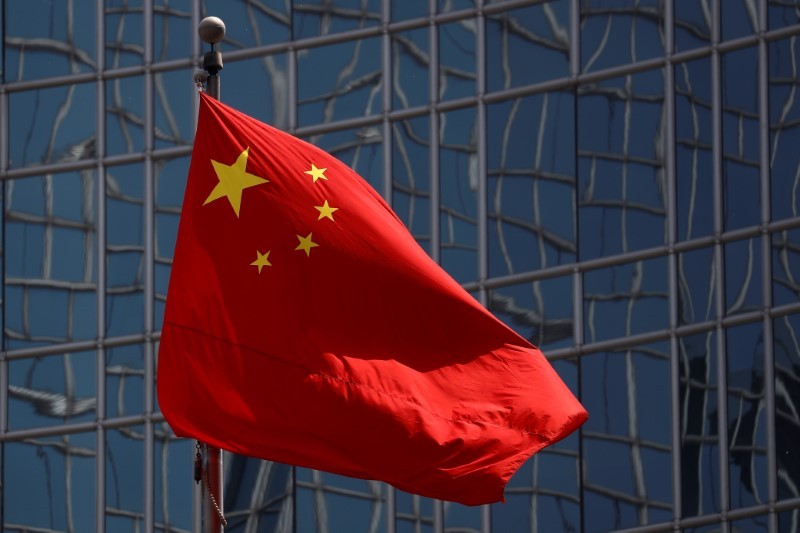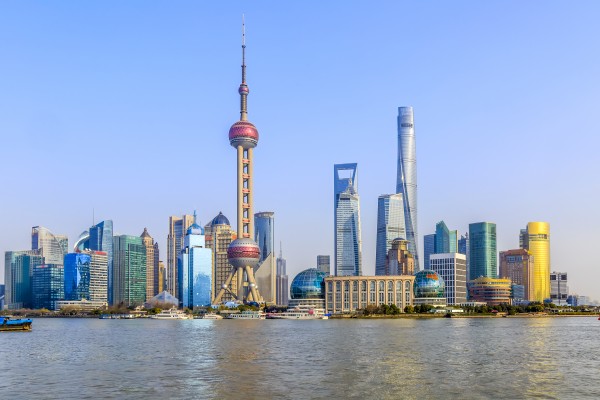Review №5 on Chinese Antitrust News from BRICS Antimonopoly Centre Experts
- Taxi services will reveal the principles of pricing
- Users about the openness of platforms
- Balance between long-term goals and short-term financial performance
- Heilongjiang Province Adopted
- Opinions on Accelerating the High-Quality Development of the Platform Economy
- DiDi leaves Russia and Kazakhstan
- WTO lawsuit against ChinaMeasures to stabilize mineral prices
- Operations with cash yuan are provided without fail
- Convention on Self-Discipline in the Metaverse Industry
- Regulation of pre-installed applicationsFair treatment of foreign investors
- Administrative monopoly in Hubei Province
- Taxi services will reveal the principles of pricing
At a press briefing, Wang Xiuchun, spokeswoman for the Chinese Ministry of Transportation, said the ministry will require China's leading taxi and freight services to disclose their pricing systems and set a reasonable level of service fees. The ministry will focus on the percentage of profits that platforms can extract in the form of commissions.
Source: Global Times
Users about the openness of platforms
Suzhou University presented the results of a survey of more than 5,000 users across China on their awareness and attitude towards the concepts of "openness" and "interoperability". More than 1,500 employees of companies represented on e-commerce platforms were also surveyed: more than 65% of them believe that openness and interoperability will provide more space for the survival of small and medium-sized entrepreneurs and almost 50% that this will reduce the costs of businesses. More than 30% noted that such conditions will facilitate traffic attraction, increase entrepreneurial opportunities, and solve market opacity and competitive disorder.
Source: Baijiahao
Balance between long-term goals and short-term financial performance
Huang Yiping, chairman of the Center for the Study of Digital Finance at Peking University, said that the backlog in financial sector regulation increases the chances of systemic risks emerging. In platform regulation, the main principle is the balance between innovation and stability. It is important not only to regulate but also to explain the purpose of this regulation - the orderly development of platforms, promotion of shared prosperity, not pressure. The focus of today is the stabilization of the macroeconomics, the stable support of the real economy at the expense of finances. To do this, you need to balance short-term and long-term goals: you can not exert too much economic pressure in the short term in an effort to achieve long-term goals.
Source: Weixin
Heilongjiang Province Adopted Opinions on Accelerating the High-Quality Development of the Platform Economy
Opinions set concrete benchmarks for platform development by 2025: attract 30 influential Chinese and foreign platforms, "nurture" 50 local competitive platforms, fully digitize the core operations of 60% of large industrial enterprises. The province's e-commerce turnover is expected to exceed 600 billion yuan, while online retail sales will reach 100 billion yuan. The opinions present specific requirements for different types of platforms (industrial internet, digital farming and forestry, e-commerce, smart logistics, digital finance, innovation, online education, cyber security, etc.). It is also proposed to create zones and cities of a "exemplary" platform economy and introduce innovative regulatory models.
Source: DBW
DiDi leaves Russia and Kazakhstan
The Chinese taxi aggregator DiDi will stop working in the Russian and Kazakhstan markets from March 4. “Today, after a year and a half since the launch of DiDi in Russia and almost a year since the launch in Kazakhstan, we regret to announce our intention to cease operations in these important markets on March 4, 2022,” a DiDi spokesperson said. He cited changing market conditions and other challenges as the reason for this decision. The taxi service will continue to invest in development in Latin America and in some markets in the Asia-Pacific region, the Middle East and Africa.
Source: RBC
WTO lawsuit against China
The EU has filed a patent lawsuit against China with the World Trade Organization. In response, the Chinese Ministry of Commerce expressed its disappointment. "It is obvious to everyone that China is consistently improving its legislation and enforcement regarding the protection of intellectual property in accordance with strict WTO rules," a ministry spokesman said.
"Resolving economic and trade disputes within the WTO dispute resolution mechanism framework is a common practice for members of the organization. China has always supported the multilateral trading system."
The lawsuit is filed for restricting EU companies from going to a foreign court to defend and use their patents. The restrictions concern the ability of EU companies to protect the rights of key technologies such as 3G, 4G and 5G when their patents are used illegally or without appropriate compensation, for example, by Chinese mobile phone manufacturers.
Sources: Global Times, Finam
Measures to stabilize mineral prices
The Development and Reform Committee, together with other regulators, has published steps to ensure more sustainable industrial growth. The agency said government authorities would secure supplies and stabilize prices for key raw materials, including iron ore and fertilizers. They will also increase regulation of the futures and spot markets for commodities and strengthen price surveillance. The committee announced that it would encourage investment in Chinese iron ore and copper mining projects and encourage the use of scrap metal.
Separately, in conjunction with China's market regulator, the committee said it would prevent "overstocking" of ore stocks to stabilize prices and industrial chains, such as shortening the free storage period for ore trading companies and raising port service costs.
In addition, the committee is making efforts to improve the situation with coal prices: at a thematic press conference, the department announced the strengthening of proactive regulation and the intensification of the fight against anti-competitive practices in this area.
Sources: Reuters, Chinadaily, Baijiahao
Operations with cash yuan are provided without fail
The Central Bank of China has announced that all commercial banks are required to provide cash withdrawal and acceptance services. According to the Bank, cash servicing is the most basic and fundamental of financial services. Cash transactions play an important role in meeting the household needs of the population, servicing the real economy and maintaining the stability of the monetary and financial systems. Earlier, private banks Zhongguancun Bank and Liaoning NewUp Bank announced the termination of cash services: cash deposit and withdrawal services at counters and ATMs are no longer provided.
Source: The paper
Convention on Self-Discipline in the Metaverse Industry
The Metaverse Industry Committee of the China Mobile Association published the "Self-Discipline Convention" in the field of the Metaverse. The convention is aimed at the healthy development of the industry and contains five requirements:
1. Firmly adhere to the ideas of innovation, increase the conscious attitude towards compliance.
2. Counteract capital speculation indicate the direction for reasonable expectations.
3. Increase personal responsibility, abandon illegal formats.
4. Strengthen faith in innovation, engage in industry cooperation.
5. Fulfil social obligations, make China a "digital power".
The committee was founded in November 2021 and has previously issued
"Metaverse Industry Declaration". An unofficial English translation can be found here.
Source: News.cnstock
Regulation of pre-installed applications
The Ministry of Industry and Informatization has published the requirements for pre-installed applications for smartphones for public consultation. Such applications should put the user first, follow the principles of security, speed and "barrier requirements", and respect the user's right to information and choice. The manufacturer is obliged to provide the ability to uninstall any pre-installed applications other than "basic", as well as provide a safe and convenient way to uninstall. The "basic" includes applications related to the operating system, the normal functioning of the software and the communication functions of the smartphone (calls, messages, browser, etc.).
Fair treatment of foreign investors
On March 1st, a regulatory document protecting the rights and interests of foreign investors will come into force in the southern Chinese province of Guangdong. It requires local governments at all levels to treat Chinese and foreign investment equally, such as public finance and government investment, land availability, tax incentives, permits, standards, project applications, labour resources, and more. The preparation and implementation of discriminatory policies and measures are prohibited. In addition, the participation of companies with foreign investments in the creation of research institutes and their cooperation with other enterprises, scientific organizations and universities is welcomed. Some companies
Fortune Global 500 companies including Apple, Intel, Samsung and Honda have already opened R&D centres in the province.
Source: Global China
Administrative monopoly in Hubei Province
The market regulator has published reports of local cases of abuse of administrative power to restrict or eliminate competition. The Huangguang City Planning Enforcement Committee required bidding agencies to have a production facility within the city limits. The Suizhou Bureau of Natural Resources and Planning ruled that local land valuation organizations can operate only with a registration certificate in the local administration. In the course of the investigation, these departments cancelled their rulings.
Source: SAMR




